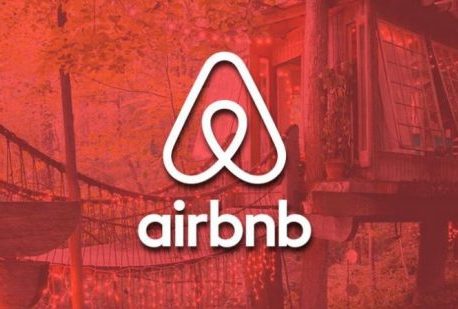USA TODAY: Airbnb expands pledge to fight human trafficking amid hospitality industry struggles
Airbnb is expanding its commitment to fight human trafficking with anti-trafficking nonprofit Polaris as the hospitality industry faces a series of lawsuits claiming it’s not doing enough to curb the crime.
The work is pressing: Nearly 25 million people worldwide are victims of human trafficking, according to Polaris. Human trafficking can include everything from sexual exploitation to forced labor.
Of 383 U.S. sex trafficking cases that listed where a commercial sex act took place, 81.5% were at a hotel, according to a 2018 study from the Fairfax, Virginia-based Human Trafficking Institute.
Airbnb has reportedly seen a variety of sex trafficking crimes at rentals: A runaway teenage girl coerced into sex acts; a 29-year-old man arrested following an underage girl found at a rental in Utah; and an alleged increase in cases in Toronto.
A chief problem in tackling human trafficking is that it is a data-poor field. “What we know about is likely the very tip of the iceberg in all forms of trafficking,” Caren Benjamin, chief communications officer at Polaris, told USA TODAY. Polaris has operated the U.S. National Human Trafficking Hotline for over a decade and worked on nearly 11,000 cases of human trafficking in 2018.
Airbnb’s new plan is an expansion of work that started in 2018, when the company worked with Polaris to create a training curriculum for Airbnb’s safety agents and crisis managers across the world. These employees handle safety concerns regarding reservations — whether trafficking allegations or weapon concerns, they are trained to deal with sensitive situations. This 2018 effort included training on everything from spotting signs of exploitation to how to best work with law enforcement.
What’s new for Airbnb’s 2020 anti-trafficking plan?
In-person host training. The goal is to have the host community identify signals or triggers in the nature and style of the reservation, plus provide action steps to report potential trafficking. The trainings are expected to begin in San Francisco and Washington, D.C. in the second half of this year.
Virtual host training. The training is expected to be similar to in-person host trainings. Neither training is required, but Airbnb is coming up with incentives to encourage hosts to participate worldwide.
Airbnb staff training. The company is ensuring its trust and customer support teams are trained in human trafficking signs as a part of employee onboarding and is expanding the number of teams that receive training.
Airbnb also works with the National Center for Missing and Exploited Children and was a founding member, along with several large hotel chains, of the World Travel & Tourism Council’s global task force to prevent and combat human trafficking.
But Airbnb is not without its critics anddoesn’t coordinate with ECPAT International, an organization aiming to end child sex trafficking.
“We are aligned with ECPAT’s mission and are reviewing ways that we can possibly become more involved,” Airbnb spokesman Ben Breit said.
Why is Airbnb doing this?
While not fully-fleshed out, Airbnb and Polaris’ new training aims to provide a deeper and more nuanced understanding of human trafficking beyond just seeing the signs.
“When you don’t know to look for things, you may miss it,” Margaret Richardson, Airbnb’s vice president of trust and anti-trafficking expert, said.
If Airbnb hosts and employees work to understand how trafficking works — like how people are recruited and how traffickers use financial systems — they will be in a much better position to provide folks in those situations with support, Benjamin said.
One of the most nefarious elements to human trafficking, Richardson said, is that traffickers alter the way they work, so new patterns will be monitored and training updated accordingly. Hosts and employees will be doing this monitoring.
Human trafficking lawsuits mount against hospitality industry
Richardson said Airbnb is trying to make sure that it’s learning from the lessons of the broader hospitality industry.
Lawyers representing human trafficking victims wanted a single federal judge to oversee multiple lawsuits alleging that major hotel chains have ignored human trafficking taking place on their premises, the Associated Press reported in December.
Attorneys asked a federal panel to consolidate at least 21 such lawsuits pending in 11 states into a single case in federal court in Columbus, Ohio, arguing that the lawsuits contain the same basic allegations.
Companies named in the lawsuits, including Choice Hotels International, Inc., Inter-Continental Hotels Corps., and Wyndham Hotels & Resorts, declined to comment on the lawsuit to the Associated Press but all said they take the issue of human trafficking seriously and do everything they can to prohibit it. That includes training hotel employees on ways to identify trafficking.
About 1,500 victims of human trafficking have retained lawyers in the various lawsuits and as many as 7,000 are expected over time, said Paul Pennock, an attorney with the New York-based firm Weitz & Luxenberg, which is leading the efforts to consolidate the lawsuits.
USA TODAY has reached out to Weitz & Luxenberg for an update.
A lawsuit filed against 22 Naples, Florida-area hotels and motels is in line with this national effort to hold hotels accountable for ignoring sex trafficking activities, according to an expert from the Human Trafficking Institute in Virginia. This was reported by the Naples Daily News, which is a part of the USA TODAY Network.
Contributing: Associated Press; Jake Allen, Naples Daily News

About the author